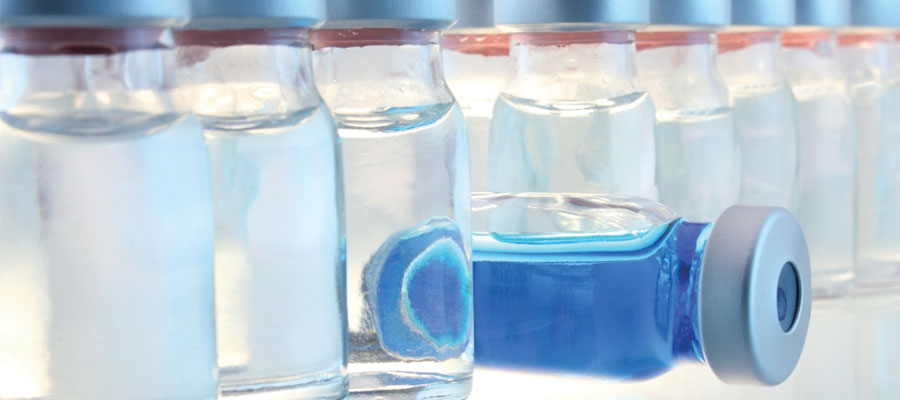GSK hands over large tumour sample collection in exciting new collaboration
4 Oct 2018
Glaxo Smith Kline (GSK), one of the world’s biggest and most highly-regarded pharmaceutical companies, has agreed to give EORTC access to the human biological samples and clinical data collected in the course of research into cancer immunotherapy by its vaccines business. The scale of the transfer of this biobank is exceptional, and will help to create many different new opportunities for cancer research, and for patients.
« The vast tumour sample collection and its associated clinical databases represent an extremely valuable scientific resource, » says Dr Denis Lacombe, EORTC Director. « The fact that GSK is prepared to entrust us with them is further proof of the high regard with which EORTC is regarded in the oncology community. »
The biobank has been held by GSK since the ending of a number of trials of vaccine immunotherapy in 2015, in line with the recommendations of the trials’ independent data monitoring committees. « At a time when new technologies allow a better understanding of cancer biology and the mechanisms of action of treatment, the use of such datasets and human biological collections can advance the progress of new therapies and provide a source of hope for millions of cancer patients around the world, » says Dr Lacombe.
“Scientific partnerships are crucial to how we work in R&D at GSK, and facilitating innovation outside of GSK is part of this commitment. This unique transfer of samples and associated data were created by years of studies and passion from our scientists, and we are proud to share them with the EORTC in order to contribute to the fight against cancer”, said Dr Emmanuel Hanon, Senior Vice-President and Head of R&D, Global Vaccines GSK.
GSK is in the process of transferring custodianship of the tumour samples to the EORTC and also providing access to the associated clinical data. The agreement is compliant with the GSK Internal Contril Framework methodology, which is based on recognised international risk management standards. The sample transfer has been approved by the independent ethics committee of the Erasmus Hospital, Brussels, Belgium. The Belgian Data Privacy Commission has also endorsed the secure way in which data will be transferred to the EORTC and the strict rules that will maintain secure data handling.
« Non-commercial and commercial clinical research are complementary. In recent years we have seen the emergence of new forms of partnership that attempt to optimise and combine the strengths of different stakeholders for faster, tailored delivery of therapeutic progress, » says Dr Lacombe. « Together, we must assure patients that their contribution to research is being used as best as possible. This partnership represents a tremendous opportunity for the research community, as well as for patients. »
Related News
EORTC: Advancing research and treatment for rare cancers
29 Feb 2024
EORTC Fellowship Programme: celebrating more than 20 years of impactful collaboration
22 Feb 2024
Appointment of Malte Peters as EORTC Strategic Alliance Officer
9 Feb 2024
Unique series of workshops in partnership with the European Medicines Agency (EMA)
7 Feb 2024
EORTC launches a prominent clinical trial in older patients with locally advanced (LA) HNSCC (Head and Neck Squamous Cell Carcinoma)
14 Dec 2023
Seven IMMUcan abstracts selected for ESMO Immuno-Oncology Congress 2023
6 Dec 2023
EORTC Quality of Life measures integrated in CDISC
20 Nov 2023
EORTC and Immunocore are collaborating to launch the ATOM clinical trial of tebentafusp in Adjuvant Uveal Melanoma
7 Nov 2023
Treatment with decitabine resulted in a similar survival and fewer adverse events compared with conventional chemotherapy in older fit patients with acute myeloid leukaemia
31 Oct 2023
New results and forthcoming EORTC trials in rare cancers, lung, head and neck, and breast carcinomas presented at ESMO 2023
20 Oct 2023


